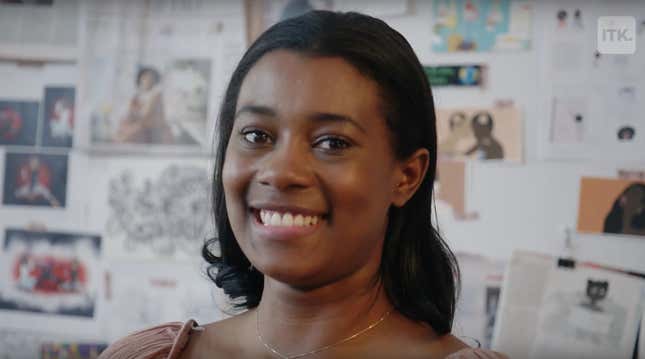
Amid the global panic a global pandemic can inspire, it might be easy to forget that it’s still Women’s History Month—and the start of spring, but that’s likely cold comfort if you’re afraid to go outside. As we’ve tried to bright-side this socially isolating situation, we’ve increasingly been looking inward—literally. What joy can we find in the great indoors; pleasures we may have been neglecting in favor of our perpetual FOMO?
As the corner of The Root largely dedicated to black women, we do not intend to let the rest of this precious month go to waste, contagion be damned. So, we’ll be resuming our regularly scheduled programming, albeit undoubtedly influenced by current events. But speaking of corners: during my recent days in seclusion (the first of many to come, since Illinois Governor J.B. Pritzer just announced that our shelter-in-place begins in earnest this weekend) my eyes kept wandering to the magazine table in the corner of my Chicago abode, where a growing stack of issues of The New Yorker awaits my perusal.
No, it’s not what I instinctively consider to be black woman-centric content. But when I saw a flurry of stories over the past few days lauding the magazine’s first black female cartoonist, I took it as a sign that I should dig in.
Her name is Elizabeth Montague—Liz, for short. At 24, she became one of the youngest cartoonists to appear in the pages of one of America’s oldest and most esteemed literary, criticism and journalism magazines when they included her art—which largely centers brown-skinned, seemingly natural-haired female characters—in their March 11, 2019 issue. Most recently, you can see Montague’s art–which is also the centerpiece of the popular “Liz at Large” weekly feature for Washington City Paper—in The New Yorker’s March 2, 2020 edition. As the cartoonist told ABC News in February, her work with the famed publication was initiated when she dared to write The New Yorker’s cartoon editor about the lack of diversity in the magazine’s images.
“I think that it’s really easy for people to not see things and that until you tell someone like, ‘Hey, by the way, you know you might not see this, but I’m seeing this very big lack that you know, sometimes people are unaware of it,’” she said.
It was a bold move—and a brilliant one, as Montague’s work ultimately landed on The New Yorker’s pages (and rightfully so). But is she the first black woman to accomplish the feat, as widely touted by not only ABC but also suggested by outlets like Black Enterprise, the Washington Post, and video series In the Know?
The New Yorker says not exactly. In fact, via email, the magazine’s press office told The Glow Up they don’t know for sure when the first black woman had a cartoon featured in its pages, as the cartoon editor often doesn’t know the race or ethnic identity of their contributors. However, they did know for sure that black female cartoonist Emily Hopkins (née Richards) first published her work in The New Yorker in 2004 (a fact that might’ve gone unnoticed simply because Hopkins’ work happened not to feature predominantly black characters).
“I think that it’s very rare for black people, or especially people of color in general, to get to tell their stories, and I think that there needs to be more of that,” Montague told ABC. “I think that hopefully, the industry is becoming more welcoming of that.”
Does the revelation that she’s not the “first” in any way diminish Montague’s accomplishment as a now-regular contributor to the storied magazine—or The New Yorker’s broadening of the representation within its issues (however belated)? Absolutely not. In fact, it gives us more unique black female genius to celebrate this Women’s History Month (and more for me to look forward to when I work my way through a year’s worth of The New Yorker this weekend).
“I try really hard just to stick to my perspective as an individual just because it’s such a broad field of, like, black people as a whole, women as a whole,” said Montague. “I don’t want to pretend like I can represent every black person or every woman on the planet because everyone’s different.”
And yet, in moments like these, everyone can also relate.

